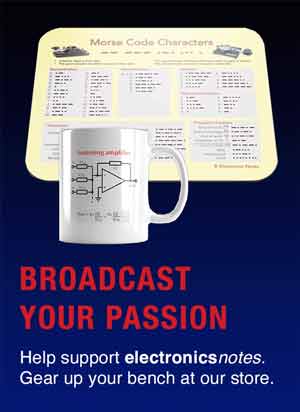Home » Component data » JFET data » this page
LSJ74 JFET Data
Data for the LSJ74 JFET including electrical parameters, maximum current and voltage, pin connections, package type and many other datasheet details.
The LSJ74 single, ultra-Low noise, P-channel JFET amplifier is a direct replacement for the Toshiba 2SJ74. It is ideal for Ultra-Low Noise Audio/Acoustic Applications.
The LSJ74 is available in the TO-92 3L RoHS, SOT-89 3L RoHS, as well as in die form.
Key details and performance parameters for the LSJ74 JFET.
| LSJ74 JFET datasheet parameters & data |
|
|---|---|
| Parameters | Details |
| Brief description | High Input Impedance, Ultra-Low Noise, Single P-Channel JFET |
| Package type | TO92, SOT89-3 |
| Gate to source breakdown voltage BVGSS | -25V min at VDS = 0V and ID = -100µA |
| Drain source saturation current IDSS | LSJ74A: -2.6mA min, -6.5mA max LSJ74B: -6.0mA min, -12mA max LSJ74C: -10mA min, -20mA max LSJ74D: -17mA min, -30mA max |
| Gate operating current IG | 50µA max |
| Gate source leakage current current IGSS | 1nA max |
| Full conduction transconductance gFS | 14mS min, 22mS typical at VDS = 10V and ID = 2mA |
| Typical conduction transconductance gFS | 8mS min, 122mS typical at VDS = -10V and VGS = 0V |
| Input capacitance | 105pF |
| Transfer reverse capacitance | 32pF |
| TJ °C | 135°C |
| PTOT mW | 400mW |
| Primary manufacturer | Linear Systems |
Outlines & pinout:
Explanation of JFET parameters
| Parameter | Explanation |
|---|---|
| Operational mode | This details whether the FET is an enhancement or depletion mode |
| Channel type | The channel of the JFET can either be an N-type channel where electrons are the majority carriers or P-type where holes are the majority current carrier. |
| Drain to Source voltage VDSS | This is the maximum voltage that can be sustained between the drain and source |
| Gate to source voltage VGSS | This is the maximum voltage that can be sustained between the drain and the gate. |
| Maximum drain current continuous ID | This is the maximum current that can be carried byt he device. Sometimes there may be a differentiation between the continuous and pulsed or peak values |
| Parameter | Explanation |
|---|---|
| Zero gate voltage drain current IDSS | This is the current carried by the device when the gate voltage is zero. The test conditions are normally stated for this. |
| Gate threshold voltage VGS(th) | This is the minimum gate-to-source voltage, VGS required to create a conductive channel between the source and drain terminals |
| Static drain source ON resistance RDS(ON) | This is the resistance of the device when turned on. The test conditions of voltage and current are normally given for this. |
| Drain source ON voltage VDS(ON) | This is the voltage across the device when it is turned on. Again the test conditions are given. |
| Forward transconductance gFS | Forward transconductance also given the letters gm is defined as the change in drain current (ΔID) for a small change in the gate-source voltage ΔVGS, with the drain-source voltage, VDS held constant. |
These are the main JFET parameters that have been included in our list. There are others, but these are the main ones and they help quantify the main elements of the performance.
Please note, that the data given is the best estimate we can give within a tabulated summary of this nature. Parameters also vary between manufacturers. Electronics Notes cannot accept any responsibility for errors, inaccuracies, etc, although we do endevaour to ensure the data is as accurate as possible.
Notes and supplementary information
• Availability & sources
The LSJ74 is available from a number of stockists and electronic component distributors many of which are given in the table below.
LSJ74 Component Distributor, Stock and Pricing
• Further details
The LSJ74 is available in a through-hole TO-92 package and a surface mount SOT-89 package.
The LSJ74 is often used as the complement to LSK170 enabling complementary driver stage to be designed.
 Written by Ian Poole .
Written by Ian Poole .
Experienced electronics engineer and author.
Return to Component Data menu . . .




